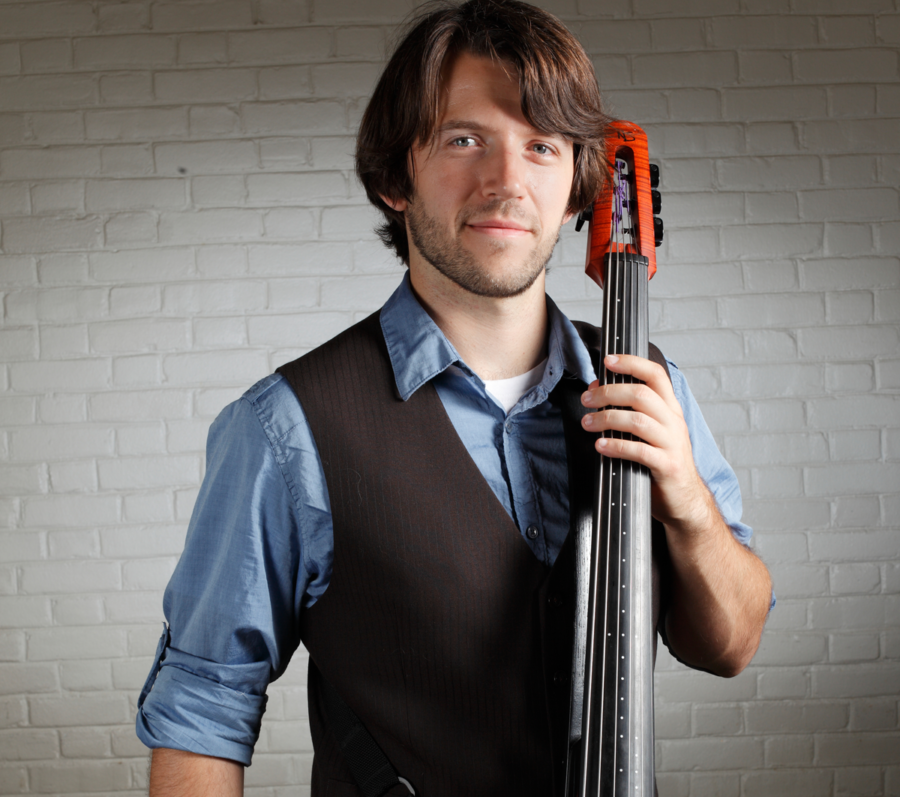The signature song on cellist Wytold’s new album began as an improvisation. As he sat in the lobby of the America building at Walter Reed National Military Medical Center, wounded veterans, family members and caregivers streamed by him.
“I was right in front of these huge glass windows,” says the musician, who plays a six-stringed electric cello. He had just talked to some patients about “what they were going through and how much the music meant to them,” he says, “and I just felt like I was channeling that whole kind of feeling and experience.”
The artist — full name William Wytold Lebing — also conducts weeklong workshops through a recreational arts program administered by the USO Warrior and Family Center for military members receiving medical treatment at Walter Reed. Playing for wounded veterans and their families for two years revealed a world Wytold didn’t know much about — it bridges a gap between the generally progressive arts community and more conservative military types, he says — but it’s also changed the way he composes music.
Wytold’s most recent album, Fireflies, Fairies & Squids, reflects his artistic shift. On this record, he says, “You can slow down and take everything in, and I think that mindset and my decision to put out that kind of gentler music was shaped by all of these experiences at Walter Reed.”
The song “Let the Light In” stemmed from that day in the America building. It represents a change for a musician who calls his earlier work “progressive classical” with live looping. Today his compositions are quiet and otherworldly — a departure from the classical/hip-hop fusion on his album Biggie, Beethoven, Busta, and Bach, not to mention his performances alongside the National Symphony Orchestra and superstar cellist Yo-Yo Ma.
In the workshops, musicians, poets and visual artists offer veterans hands-on opportunities for creative expression. For Wytold, that might mean an introduction to playing the ukulele, or a workshop he calls “music theory demystified.” Some workshop participants have gone on to show their visual art or perform the guitar or cello they’ve learned.
“When you see people who aren’t talking to anyone and are shifty-eyed and jittery, and by the end of the week, they’ve come around to singing an original song, it’s such a rich, powerful experience,” Wytold says.
For some former soldiers, making art provides unexpected inner peace. According to Wytold, some have told him, “this is the first beauty I’ve found in the world since I deployed.”
Wytold performs an album-release show Dec. 17 at The GallÆrie pop-up gallery in Mount Pleasant. It will include an exhibition by self-taught mixed-media artist Joe Merrit, a Marine Corps veteran whose work came out of workshops at Walter Reed.


